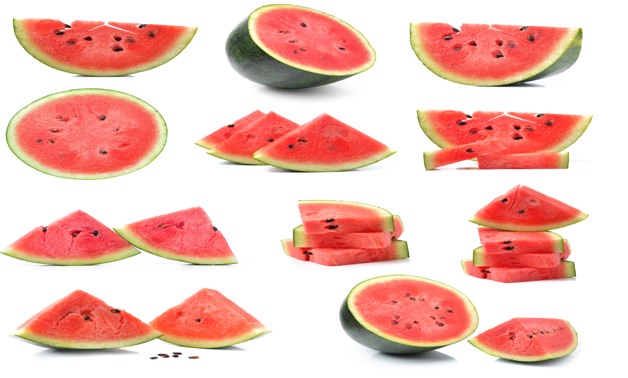
Fruits - Creative Commons
Despite some bad press because of its high GI ratings, watermelon is fast being considered a new superfood—in fact, it could even be the new coconut.
What’s even better is that, here in Egypt, it’s all around us at the moment; you can’t drive down a street without passing a cart packed with the familiar green beauties.
But did you know that watermelons were actually first cultivated in ancient Egypt, more than 4,000 years ago? We know this because archeologists have found watermelon seeds as well as paintings in a number of ancient tombs, including King Tut’s.
The wild fruit of those days was actually hard and bitter, rather than sweet, but it did store well and provided a great source of water; hence their popularity in planning for the afterlife. By the seventh century, watermelons were being cultivated in India; some 300 years later, the fruit is thought to have first reached China, which today supplies the majority of watermelons to the world.
Perhaps because it is so common in Egypt, it’s easy to overlook all the tremendous health benefits of this ancient superfood. Packed with vitamins A, B1, B6, and C, it’s also a rich source of the phytochemical lycopene and the amino acid L-citrulline. It even contains small amounts of minerals such as potassium and magnesium. Of course, watermelon is also made up primarily of water, so it’s low in sodium and free of fat and cholesterol.
Here are 8 reasons why you should definitely include the wonderful battikh in your diet.
1. It can aid weight loss
Thanks to its high water content, watermelon can fill you up for fewer calories. Water has also been found to speed up metabolism and flush out toxins and fats, which can help contribute to weight loss, obviously as part of a healthy diet and fitness regime.
2. Watermelon juice may relieve muscle soreness
Try juicing about one-third of a fresh watermelon and drinking its juice prior to your next workout. This contains a little over one gram of l-citrulline, an amino acid that protects against muscle pain.
3. It improves bone health
Vitamin C plays a major role here as the nutrient is good for the bones and aids wound healing. A Swiss study suggests that lycopene supplementation can prevent osteoporosis and bone fractures. The vitamin A content has also been linked to bone growth.
4.The fruit strengthens immunity
Watermelon, being rich in vitamin C, strengthens the body’s immune system. The fruit also contains vitamin B6, which helps the immune system produce antibodies and aids in the formation of red blood cells. The fruit’s vitamin A, meanwhile, helps regulate the immune system and protects it from infections.
5.They’re a great post-workout snack
Watermelons are full of magnesium and potassium. We often lose these two minerals, along with sodium, in our sweat during exercise, and they need to be replenished immediately. Potassium and magnesium are known as electrolytes because they help carry the electrical signals in the body and allow our muscles to contract and relax.
6. Great for good skin and healthy hair
Watermelon contains vitamins A and C, which are important for skin and hair health. Vitamin C helps your body produce collagen, a protein that keeps your skin supple and your hair strong. Vitamin A is important for healthy skin since it helps create and repair skin cells. Without enough vitamin A, your skin can look dry and flaky.
7.Watermelon can help with blood pressure and heart health
New research shows the citrulline and arginine supplements derived from watermelon extract lead to significant improvements in blood pressure and cardiac stress in obese study participants. Because of its antioxidant properties, lycopene extract from watermelons can significantly reduce oxidative stress and blood glucose levels too.
8.It’s anti-aging
According to researchers, L-citrulline also has a profound effect on body composition. Normally, as you age, the number of mitochondria—the so-called powerhouses of cells—in your body decreases, causing muscle mass to decline and fat to take over. However, watermelon juices up the production of regenerative proteins that build muscle and repair mitochondria, allowing them to produce more energy and, in turn, burn more fat.

Comments
Leave a Comment